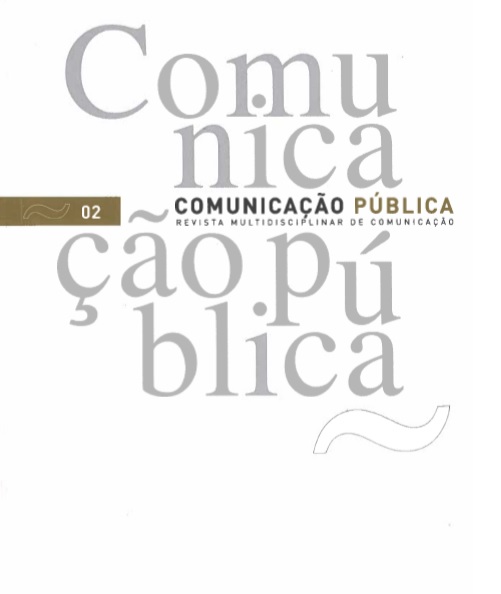Rational consumer choice
DOI:
https://doi.org/10.4000/cp.9182Palavras-chave:
consumer choice, rationality, intertemporal optimization, marketing and advertisingResumo
Consumer oriented communication sciences (marketing and advertising) base their work on a pattern of individual behavior that relies essentially on psychological and sociological motivations. In this paper, we discuss how the economic science deals with the consumer choice problem and we argue that the rational behavior, that Economics characterise, must be the underlying structure to be used when it is necessary to predict how tastes and preferences change or can be changed. The framework that Economics provide, namely when analysing intertemporal choices, gives the rule for human consumption behavior. Without this rule it is impossible to understand the exceptions, that is, the behavior that is abnormal to economic reasoning and that other sciences explore and try to explain. Hence, this is an economic paper directed to a non economic audience and it intends to emphasise the importance of scientific interdisciplinarity, namely in this case between Economics and the younger marketing and advertising research fields.
Downloads
Referências
Akerlof, George A. (1970). “The Market for ‘Lemons’: Quality Uncertainty and the Market Mechanism.” quarterly Journal of Economics, 84, 3, 488-500. DOI: https://doi.org/10.2307/1879431
Ando, Arnaldo and Franco Modigliani (1957). “Tests of the Life Cycle Hypothesis of Savings: Comments and Suggestions.” Bulletin of the Oxford University Institute of Statistics.
Bagwell, Kyle (2003). The Economic Analysis of Advertising. Columbia University.
Cass, David (1965). “Optimum Growth in an Aggregative Model of Capital Accumulation.” Review of Economic Studies, 32, 233-240. DOI: https://doi.org/10.2307/2295827
Debreu, Gerard (1959). Theory of Value. New York: John Wiley.
Evans, George W. and Seppo Honkapohja (2001). Learning and Expectations in Macroeconomics. Princeton, New Jersey: Princeton University Press. DOI: https://doi.org/10.1515/9781400824267
Friedman, Milton (1957). A Theory of the Consumption function. Princeton: Princeton University Press.
Gomes, Orlando (2005). “Concorrência Monopolística e a Análise Económica da Publicidade.”Revista Portuguesa de Economia e gestão, 2, 7-27.
Kahneman, Daniel (2003), “Maps of Bounded Rationality: Psychology for Behavioral Economics.”American Economic Review, 93, 1449-1475. DOI: https://doi.org/10.1257/000282803322655392
Koopmans, Tjalling C. (1965). “On the Concept of Optimal Economic Growth.” in The Economic Approach to Development Planning. Amsterdam: North Holland.
Lucas, Robert E. (1972). “Expectations and the Neutrality of Money.” Journal of Economic Theory, 4, 103-124. DOI: https://doi.org/10.1016/0022-0531(72)90142-1
Lucas, Robert E. (1988). “On the Mechanics of Economic Development.” Journal of Monetary Economics, 22, 3-42. DOI: https://doi.org/10.1016/0304-3932(88)90168-7
McFadden, Daniel (1973), “Conditional Logit Analysis of Qualitative Choice Behavior.” In P. Zarembka (ed.), Frontiers in Econometrics. New York: Academic Press, 105-142.
McFadden, Daniel (1998), “Rationality for Economists?” Santa Fé Institute working paper.
Modigliani, Franco and Richard Brumberg (1954). “Utility Analysis and the Consumption Function: An Interpretation of Cross-Section Data.” In K. K. Kurihara, ed., Post-Keynesian Economics, 388-436. New-Brunswick, N.J.: Rutgers University Press.
Ramsey, Frank (1928). “A Mathematical Theory of Saving.” Economic Journal, 38, 543-559. DOI: https://doi.org/10.2307/2224098
Ricardo, David (1817). On the Principles of Political Economy and Taxation. Cambridge: Cambridge University Press, 1951.
Romer, Paul M. (1986). “Increasing Returns and Long-Run Growth.” Journal of Political Economy, 94, 1002-1037. DOI: https://doi.org/10.1086/261420
Rothschild, Michael and Joseph E. Stiglitz (1976). “Equilibrium in Competitive Insurance Markets: an Essay in the Economics of Imperfect Information.” quarterly Journal of Economics, 80, 629-649. DOI: https://doi.org/10.2307/1885326
Sargent, Thomas J. (1973). “Rational Expectations, the Real Rate of Interest and the Natural Rate of Unemployment.” Brookings Papers on Economic Activity, 2, 429-472. DOI: https://doi.org/10.2307/2534097
Simon, Herbert A. (1957). Models of Man: Social and Rational; Mathematical Essays on Rational human Behavior in Society Setting. New York: JohnWiley.
Smith, Adam (1776). An Inquiry into the Nature and Causes of the Wealth of Nations, Everyman Edn.. London: David Campbell Publishers, 1991.
Solow, Robert M. (1956). “A Contribution to the Theory of Economic Growth.” quarterly Journal of Economics, 70, 65-94. DOI: https://doi.org/10.2307/1884513
Spence, Michael (1973). “Job Market Signalling.” quarterly Journal of Economics, 87, 3, 355-374.
Spence, Michael (1976). “Product Selection, Fixed Costs, and Monopolistic Competition.” Review of Economic Studies, 43, 2, 217-235. DOI: https://doi.org/10.2307/2297319
Publicado
Edição
Secção
Licença
Direitos de Autor (c) 2005 Copyright (c) 2005 Author

Este trabalho encontra-se publicado com a Licença Internacional Creative Commons Atribuição-NãoComercial 4.0.
Os conteúdos da Comunicação Pública estão licenciados com uma licença Creative Commons - Atribuição-NãoComercial 4.0 Internacional.




